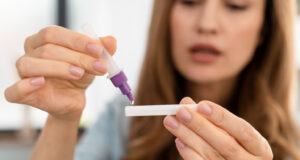Eating a well-balanced diet while breastfeeding:-
Do you need extra food while breastfeeding?
What food should be eaten to get those extra calories by a Nursing Mother?
- Low fat meats, like chicken, Fish, red meat which offer long-lasting energy from protein, as well as choline, zinc, iron and B vitamins. eating fish is one of the best ways to bring brain-boosting omega-3 fatty acids to your baby,
- Whole grains, which can satisfy the hunger and help digestion with their fibre content, and are often fortified with a wide variety of vitamins and minerals.
- Eggs, another quality protein full of choline, vitamin D and folate.
- Dairy products, like Milk, Paneer, Cheese, Curd etc. for more protein, plus high iodine and calcium content.
- Legumes (beans and lentils), which are excellent sources of plant-based protein, iron and calcium, as well as choline and antioxidants.
- eafy green vegetables, for more fibre, calcium and a variety of other vitamins.
- Omega-3 Fatty Acids: These are crucial for the baby’s brain development. Include sources like fatty fish (e.g., salmon, sardines), flaxseeds, and walnuts in your diet
How much water should you drink while breastfeeding?
Taking Medicine supplements while breastfeeding
Foods to avoid while breastfeeding;-
- Caffeine
If you drink caffeinated beverages, small amounts of caffeine will enter your breast milk. High amounts of caffeine can make babies irritable and interfere with their sleep. Limit intake to about 200-300 mg per day (about one to two cups of coffee).
- Alcohol
Alcohol can pass into breast milk and affect the baby’s development.
if you want to drink alcohol then take following precautions-
- Eat a good meal before drinking. This will help your body absorb the alcohol.
- According to the Centres for Disease Control and Prevention, alcohol levels are at their highest around 30-60 minutes after a drink. So, it’s recommended to limit yourself to one drink per day and delay breastfeeding or pumping for 2-3 hours afterwards.
- If you need to feed your baby before 2-3 hours have passed and you are feeling the effects of alcohol, use milk you have previously pumped.
- Avoid particular food if new born develops allergy to-
Rarely the new-born baby may develop allergies to certain food you consume like dairy products, soy, nuts or shellfish. Paying attention to what you eat can be helpful if you’re trying to identify which foods cause symptoms in your breastfed baby. Once you have a suspect, try eliminating it from your diet for a week to see if the symptoms improve. A lactation consultant can help with this process.
But if you notice more severe symptoms after feeding, like diarrhea, wheezing, rashes or eczema flare-ups, talk to your baby’s doctor. Both nutrition and breastfeeding can be complicated topics. Fortunately, lactation consultants can help with both. Don’t hesitate to reach out to a lactation consultant with any questions you have, whether they’re about latching, supplements, food sensitivities, or how to know if baby is getting enough breast milk.
A balanced diet during breastfeeding is vital for the health and well-being of both the mother and baby. By focusing on nutrient-rich foods, staying hydrated, and avoiding certain substances, breastfeeding mothers can ensure they provide the best possible nutrition to their babies while maintaining their own health.





